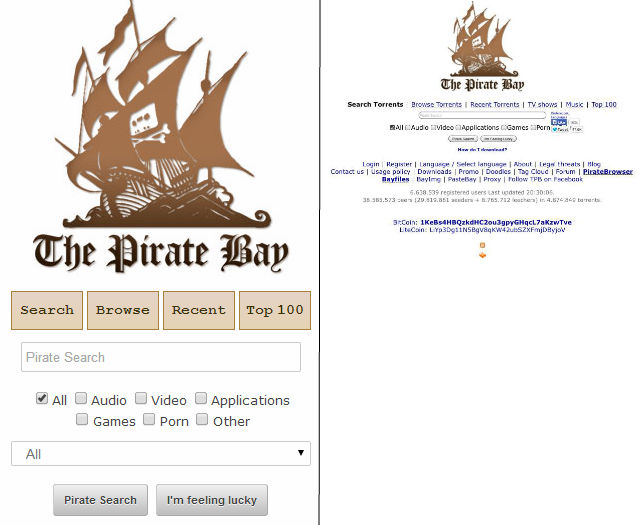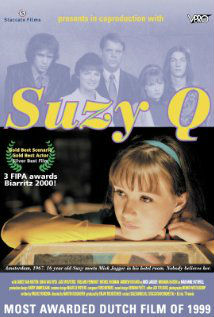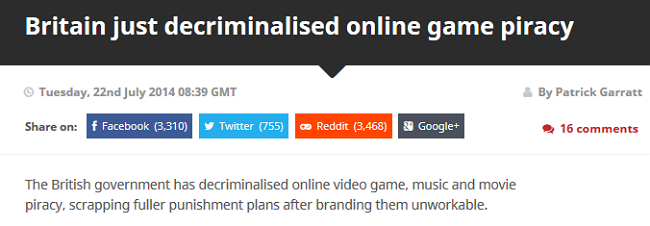University Sets Fines & Worse For Pirating Students
jeudi 24 juillet 2014 à 22:39 Anyone providing an Internet-access infrastructure to third parties needs to be aware of the online piracy issue. For service providers, whether that’s a regular ISP, web host, or the operator of a free open WiFi in a local coffee shop, knowledge of how other people’s actions can affect them is a useful asset.
Anyone providing an Internet-access infrastructure to third parties needs to be aware of the online piracy issue. For service providers, whether that’s a regular ISP, web host, or the operator of a free open WiFi in a local coffee shop, knowledge of how other people’s actions can affect them is a useful asset.
For universities in the United States, awareness of how Internet piracy can affect their establishment is especially crucial. On top of the requirements of the DMCA, in July 2010, exactly four years ago, the U.S. put in place a new requirement for colleges and universities to curtail illegal file-sharing on their networks. Failure to do so can result in the loss of federal funding so needless to say, campuses view the issue seriously.
Yesterday the The Daily Reveille, the official news resource of the Louisiana State University, revealed that LSU’s IT Services receive between 15 and 20 complaints a month from copyright holders, an excellent result for around 30,000 students.
At the start of the last decade it was music companies doing most of the complaining, but Security and policy officer Craig Callender says that with the advent of services such as Spotify being made available, reports from TV companies are more common.
But no matter where they originate, LSU acts on these allegations of infringement. A first complaint sees a student kicked offline, with Internet access only restored after the completion of an educational course covering illegal file-sharing.
Those who breach the rules again have worse to look forward to, starting with a fine.
“LSU is effectively combating unauthorized distribution of copyrighted material by fining students implicated in a verified DMCA copyright violation,” the university’s official policy document reads.
“The $50 fine provides a mechanism for recovering costs incurred in reviewing and processing DMCA notifications, and funding programs for awareness (e.g., education and ad campaign costs).”
Educational campaigns include the promotion of legal services, such as those outlined on the university’s chosen official resource list. Interestingly, while the links for music and books work, the MPAA page for legal TV shows and movies (for which the university receives the most notices) no longer exists.
But while the $50 fine might be harsh enough for a student on a limited budget, LSU warns of even tougher sanctions. Allegations of illegal file-sharing are noted on the student’s academic record which can have implications for his or her career prospects.
In addition, complaints can result in a referral to the Dean of Students’ office for violation of the LSU Code of Student Conduct. According to official documentation, the Student Conduct Office keeps Student Conduct files for seven years after the date of the incident, or longer if deemed necessary.
It’s clear that the work of the RIAA and MPAA in the last decade seriously unnerved universities who have been forced to implement strict measures to curtail unauthorized sharing. LSU says it employs filtering technology to eliminate most P2P traffic but it’s clear that some users are getting through.
Almost certainly others will be using VPN-like solutions to evade not only the P2P ban, but also potential complaints. Still, universities will probably care much less about these users, since they don’t generate DMCA notices and have no impact on their ability to receive federal funding.
Source: TorrentFreak, for the latest info on copyright, file-sharing and anonymous VPN services.




 From next year people in the UK can download and share whatever they like. Movies, music and video games. You name it – it’s a free-for-all download bonanza with zero consequences other than four friendly letters asking people to try Netflix and Spotify.
From next year people in the UK can download and share whatever they like. Movies, music and video games. You name it – it’s a free-for-all download bonanza with zero consequences other than four friendly letters asking people to try Netflix and Spotify.